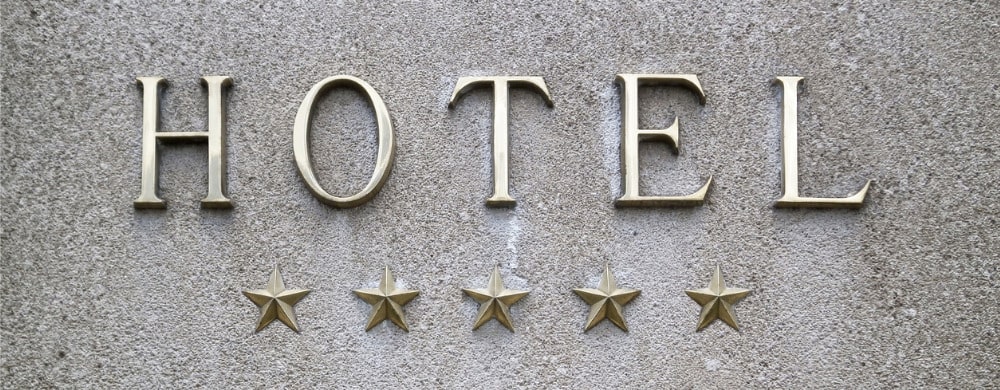Contact us and see what NetOwl can do for you!
Why Sentiment Analysis is a Necessity for the Hotel Industry

Friday’s breaking news of a major data breach at Marriott International reminded us of one of the many scenarios where an organization must closely monitor what’s being said about it in many different channels. A data breach involving 500 million stolen accounts is certainly a dreaded nightmare and a major PR crisis for any organization. It generates much online chatter — both on traditional news outlets and social media —, which can exacerbate the damage to a company’s reputation and stock value during a crisis. An effective and agile crisis management team must monitor the public and media reaction very closely and adjust their message and mitigation plan accordingly. Being able to do that effectively depends critically on having comprehensive, accurate, and timely information about what’s being said.
There are many other scenarios and reasons why a hotel company needs to keep a close eye on online content:
- Customer care. Unhappy customers often turn to social media outlets like Twitter or online review sites to air their complaints. An appropriate and swift response can go a long way to appease an unhappy customer and prevent a complaint from going viral.
- Reputation management. Knowing what is being said about a company is key for brand monitoring. Travelers often check online reviews and comments when looking to book a hotel. It’s important to maintain as good an online image as possible and in order to achieve that, companies must detect issues online promptly and publically address them.
- Brand promotion. Online content can provide valuable insight to assess how a marketing campaign like a new commercial or digital media ad is being received.
- Market research and intelligence. Discovering what customers desire and value from their hotel stays is a key insight in a fiercely competitive industry, now made even more competitive by shared-economy players like Airbnb and the rise of boutique hotels.
- Competitive analysis. Knowing how your company stacks against its peers, where it excels and misses the mark is critical for a successful business strategy and development.
- Quality control. It’s just a fact that individual incidents will always happen, but online reviews and comments can be an important source of information for hotel management to address any evolving patterns of shortcomings promptly.
Now, how does one go about turning staggering, continuously growing amounts of text or unstructured information into insights?
Sentiment Analysis: Gleaning Insights from Big Data
Sentiment Analysis, also known as opinion mining, is about detecting likes, dislikes, emotions, and opinions and is often applied to social media, reviews, blogs, forum posts, chats, and similar sources. Sentiment Analysis has many applications, both for industry and government, and is especially well suited for mining online content for the hotel industry. Here is how:
- Buzz. At the very basic level, Sentiment Analysis identifies the various mentions of a brand or concept and makes it possible to track those over time. Companies can monitor the number of mentions of their brand names, promotional hashtags, or slogans over time and be alerted if the number of mentions suddenly goes up. A high level of buzz could be good, but it could also be bad, as when an ad becomes unintentionally controversial or the object of widespread criticism, or there is a major piece of negative news about a company.
- Likes and Dislikes. Sentiment Analysis detects positive and negative sentiment around a brand or concept. At a very basic level, it identifies positive and negative language. At an advanced level, through Entity- and Aspect-based Sentiment Analysis, it pinpoints the specific aspects that those positive and negative sentiments are about. For instance, customers may love an ongoing hotel promotion, but be greatly disappointed by overcrowded facilities, noise, and low standards of cleanliness.
- Intent. Advanced Sentiment Analysis detects language suggesting intent and sentiment-based actions like intent to purchase or boycott as well as both positive and negative recommendations.
- Large Data Sample. Advanced Sentiment Analysis can scale to Big Data size, making it possible to process massive amounts of data in real time. Naturally, the larger the amount of data and the faster it can be processed, the more reliable, useful, and timely the insights and the corresponding responses will be.
- Analytics. Advanced Sentiment Analysis normalizes the extracted information thus enabling data aggregation and quantification to provide the overall view from a large collection of content. A dashboard presents multiple views of the sentiment information through various types of interactive graphs and charts. Sentiment data can be sliced and diced as desired, for instance by positive and negative aspects, and, if desired, the user can drill down to the source text for inspection and further analysis. Other useful charts show sentiment evolution over time through a sentiment timeline. Using location metadata and automated geocoding of mentioned place entities, sentiment can be plotted on a map to show, for instance, hot spots of approval and disapproval.
In summary, in today’s digital era where so much news and social media content is generated and can quickly spread and get amplified, Sentiment Analysis is a necessity for the hotel industry. It helps hotel companies to keep tabs on their reputation, market, and competitors and allows them to respond in an effective way to any positive or negative activity.



